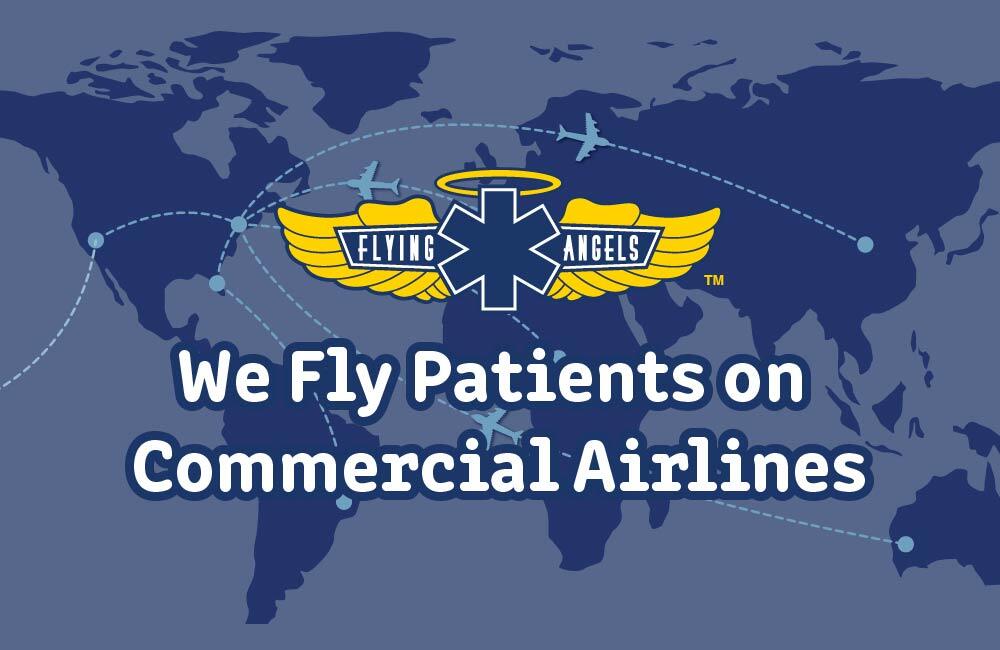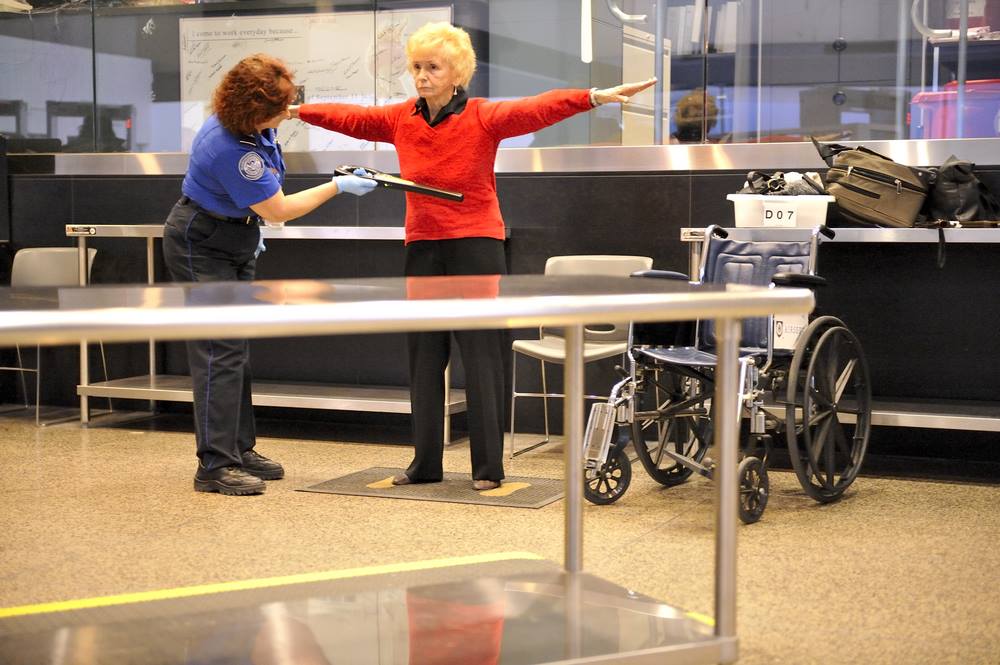


About
Flying Angels, Inc. is a non-emergency medical transport company providing commercial airline travel solutions for domestic and international travelers.

Uber and Lyft Are Now Offering Medical Transport Services
The two biggest rideshare companies have started this year to move into medical transport services.
However, those looking for an alternative need to know the differences between getting a ride from Uber and Lyft and hiring a NEMT service such as Flying Angels.
Comparing Medical Transport Services
Medical travel is a big industry and a very important one. According to JAMA Internal Medicine, about 3.6 million residents in the United States miss healthcare appointments because they do not have reliable transportation.
This can lead to increased emergency room visits, higher healthcare bills, readmission to hospitals and, eventually, higher costs across the medical insurance industry. NEMT companies such as Flying Angels have emerged as safe, reliable transportation for those who need to travel for medical visits.
Issues With Rideshare Medical Transport
There are several issues facing companies such as Uber and Lyft attempting to move into the medical transport services business.
As pointed out by The Verge, they include:
- Data security. The data of patients getting picked up and dropped off could be at risk, even though the technology being used is compliant with the Health Insurance Portability and Accountability Act (HIPAA). Although it didn’t involve medical transport, Uber already has been hacked and the information on 57 million riders and drivers was exposed.
- Wheelchair accessibility. As pointed out by The Verge, Uber “doesn’t have the best track record when it comes to wheelchair accessibility.” The company already has been sued by disability advocates and accused of denying equal access to rides for the disabled in violation of the Americans With Disabilities Act.
- Medical personal. Many patients need drivers who have some type of medical certification, which is something that neither ridesharing company is yet offering, according to comments from a NEMT company official in USA Today.
Flying Angels Difference
While the medical transportation market might be an opportunity for the ridesharing companies, existing services offer far more to clients.
Flying Angels, for example, handles all the booking of transportation. They also handle more than just ground transport. They can provide Non-Emergency Medical Transport by commercial airline to both international and domestic destinations including Hawaii.
Perhaps most importantly, every patient travels with a flight nurse. These nurses have years of experience working in emergency rooms. They are certified to provide medical aid while flying. They bring equipment and medication for patients. They work with airlines and medical facilities to ensure trips go as smoothly as possible.
The differences between an experienced company such as Flying Angels and the rideshare services are vast. As pointed out by an NEMT official to USA Today, “I’m not sure new entrants into this market can do what we do.”

TSA Travel Tips for Disabled or Ill Travelers

For those traveling with disabilities or illness, important TSA travel tips will help everyone get prepared for their trip before leaving for the airport.
TSA Travel Tips
The first thing to know is that even if you are ill or disabled, that does not exempt you from having to go through security at an airport. All travelers are screened at airports, but the experience is different for those using non-emergency medical transport.
The following are some of the situations that likely will arise. The Transportation and Safety Administration has a complete rundown of various common issues on their website.
TSA Disability Notification Card
A good first step is to fill out a TSA Disability Notification Card that can be given to officers at the security gate. The card offers a quick overview that, coupled with other medical documentation, helps agents understand quickly your disability or condition.
Flight Nurse
Having a flight nurse, such as those who work with Flying Angels, gives you a partner in navigating the process. They can speak to officers about any concerns you have on security procedures, including alternative ways to handle the screening process.
Screening Process
Passengers with disabilities or illnesses can be checked through security in private rooms. Most, however, are not. Most security checks do not require those flying via medical transport to remove their shoes. However, the shoes will be checked both visually and physically. They may also be subject to explosives trace detection testing.
Other screening processes will include:
- Screening through advanced imaging technology if you can stand with your arms above your head for five to seven seconds without support or going through the walk-through metal detector if you can walk without support.
- All mobility aids such as walkers, crutches and canes – as well as medical devices – must undergo X-ray screening.
- Wheelchairs and scooters will also get screened by TSA officers, including seat cushions, non-removable pouches and fanny packs. Items will be tested for traces of explosives. Removable items will undergo X-ray screening.
Pat-down
If you cannot stand or walk through the detector, then a TSA agent will perform a pat-down while you are seated. For those who can stand for brief periods of time, you can stand near the wheelchair for a pat-down. If you go through the detector or the advanced imaging machine and an alarm is sounded, you also will undergo a pat-down.
TSA Pre-Check
One way to ease the process is to get approved for TSA Precheck, which means you will not be required to remove laptops, 3-1-1 liquids, belts or light jackets while going through security screening. You will, however, get screened via technology and possibly a pat-down. Other security measures may include swabbing your hands, any mobility aids you are using and medical equipment to search for explosive trace material.
Domestic vs. International
Generally speaking, domestic airlines are bit less demanding for those flying using non-emergency medical transport. Many also offer special assistants that you can call ahead of time and let them know your flight schedule.
American Airlines, for example, offers special assistance coordinators and a disability team that will work with you on wheelchair assistance, getting in and out of the plane, traveling with special medical equipment such as a portable oxygen concentrator, and arranging adjacent seating for you and your flight nurse.
International destinations often require more thorough medical checks, and international carriers typically have more stringent rules about getting clearance to fly with disabilities or illness. They may also require paperwork on medications and devices. This page from Air New Zealand offers a good idea of the types of rules you might encounter.
Flying with a disability or medical condition requires knowing these important TSA travel tips, pre-planning and preparation. With the right partner such as a flight coordinator and flight nurse, the experience can go much smoother.

Service Now Available For Those Who Need NEMT To Hawaii
For those who wish to travel to Hawaii but need to fly with a nurse, achieving that goal just got a little easier with NEMT to Hawaii.
NEMT To Hawaii
Flying Angels recently expanded its service area to include Hawaii. The company has staff based in Hawaii and can handle all the details in getting those to the Pacific island state who require non-emergency medical transport.
For those in such a situation, Flying Angels will “take care of everything,” the company says on its website.
Traveling To Hawaii
People can require support when traveling to Hawaii for any number of reasons. In some cases, it can be people who live there who are trying to return home from a distant location. In others, people may have travel plans for Hawaii but are not able to make the trip without flying with trained medical personnel.
Also, those in Hawaii may need transportation services from one island to another.
Hiring non-emergency medical transport can help in all these cases. Flying Angels specializes in providing medical care for those who need it when traveling, as well as arranging all the details of a trip to make it as non-stressful and enjoyable as possible.
Flying Angels Services
Flying Angels, based in Philadelphia, has emerged as a leader in the growing non-emergency medical transportation (NEMT) field.
NEMT is a very different service than an air ambulance, which is what many think of when they think about medical transport. In the case of an air ambulance, people are flown to trauma centers or intensive care units by helicopter or plane.
They are most often seen taking people from the site of major accidents or during natural disasters.
NEMT also transports patients, but under different circumstances. A NEMT service such as Flying Angels transports people using domestic and international commercial airlines, as well as with ground transportation to and from the airport.
A flight nurse travels with the patient. They are trained medical professionals capable of handling emergency situations. They also carry any medications a patient might need. They are with the patient the entire trip
Typically, people hire Flying Angels because they need to travel to another location for needed medical treatment and cannot get there on their own. Or, they are traveling elsewhere and experience a medical situation. Once they recover, a service such as Flying Angels can get them home safely.
They also fly with those who have chronic conditions or diseases when they travel for vacation – which is a service that could come in handy now that they provide NEMT to Hawaii.
The company offers some case examples of what they do for those interested in the medical transport service.
For those who want to fly to Hawaii and feel they may need medical assistance, Flying Angels is now making that dream easier to turn into a reality.